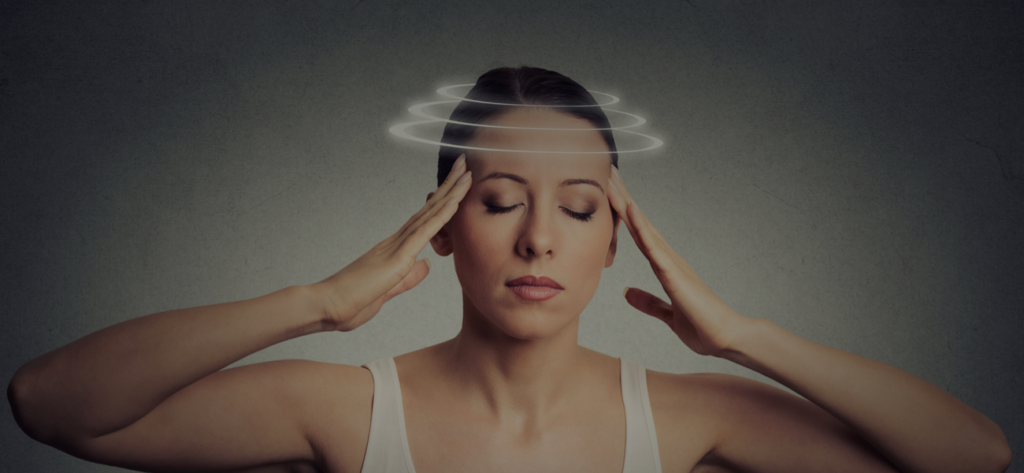Do you know someone with dizziness or balance problems? 69 million Americans aged 40 years and older suffered vestibular related problems between 2001 and 2004. 35%-65% of patients who suffered a TBI or Concussion will also experience a Traumatic Vestibular Pathology. 70%-80% of dizziness are Peripheral Vestibular Problems, and most common is BPPV. In this article, we are going to discuss some of the most common causes of vertigo and how Vestibular Rehab and Balance Therapy can help.

Benign Paroxysmal Positional Vertigo – BPPV
BPPV is the most common cause of Vertigo. Patients report symptoms of “the room spinning”. Symptoms will come on with turning in bed, or rapid changes in head position. Episodes last between 30 seconds to 2 minutes.
Vestibular Neuritis
Vestibular Neuritis is the second most common cause of vertigo. It is often preceded by a viral infection in the Upper Respiratory or Gastrointestinal Tract (GI). Patients experience an acute onset of severe rotational vertigo (spinning) that increases with head movement. Patients may experience postural imbalance and/or nausea.
Gradual return to normal balance takes about 6 weeks, and Vestibular Rehab is beneficial. Initial treatment includes bed rest and vestibular suppressants. However, use of vestibular suppressant should be reduced or stopped, or it delays recovery and doesn’t allow the Central Nervous System to compensate.
Who Qualifies for Vestibular Rehab Therapy?
Anyone who suffers any of the following:
- Vertigo (BPPV)
- Motion Sensitivity
- Mild Traumatic Brain Injury (TBI/Concussion)
- Headache, Stiff Neck
- History of Falls, Poor Balance
- Blurred Vision
- Gait Abnormality
What to Expect from a Vestibular Rehab Program
An individualized Evaluation that is comprehensive with Past Medical History, Dizziness Handicap Inventory; Balance testing in standing, Dynamic Balance including gait; Assessment of Positional Vertigo; Oculomotor or Vision Testing; ROM and Strength Testing.
Treatment is exercise based and includes:
- Adaptation Exercises – training the Vestibular system with head and eye movements
- Habituation Exercises – Performing movement that produces the symptoms, and training by the repetitions of these movements
- Substitution Exercises – replacing lost function with strengthening, gait training and assistive device, neck training, more visual input.
Dizziness and Balance Disorders are very common, and can be very disruptive to your quality of life. The Vestibular Rehab Therapy is an easy and effective way to treat it. Education of the individual and learning home treatment techniques is also an important part of the rehab. If you have any questions or would like to make an appointment with one of our rehab professionals, please call Nancy Dorau, PT at 952-922-0330.
- Traveling May Help Us Live Longer, Feel Younger - October 14, 2024
- Overcome Painful Intercourse With The Help Of Physical Therapy - October 14, 2024
- How Physical Therapy Can Help You Overcome Some Common Fears - October 14, 2024
